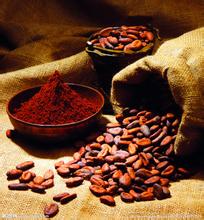Did the Arab countries start drinking coffee first? which country was the first to drink coffee?
The first cup of coffee in the world was made by Arabs. When Europeans first came into contact with coffee, they called the seductive drink "Arabian wine". In the literature left by many European travelers in the 16th century, Arabs sipped a kind of black honey boiled with black seeds. Long before Europeans knew about coffee, Arabs knew how to roast coffee and retain its fragrance in the 3rd century. The traditional production process of Arabica coffee is to use dripping method to make it, adding traditional Arab spices such as cinnamon and cardamom to cook. Although its taste is very different from that of modern western-style coffee, it is the ancestor and prototype of coffee. Coffee "eight King Kong" mocha coffee is made in Yemen, one of the oldest Arab countries. Mocha, which means chocolate coffee in English, is named after the Red Sea seaside city of Mocha in Yemen. The port city monopolized the export of coffee in the 15th century, which had a great impact on coffee trade sold to the Arabian Peninsula. Coffee shops in Arab countries generally have an area of a few square meters and white powder walls. Chest-high counters and a multi-functional coffee machine, as well as large buckets of Nestle coffee cans and milk powder cans The boss, who is also a waiter and cashier, stands behind the Great Triangle, and coffee shops usually sell only mocha, cappuccino, American coffee, Arabica coffee and hot chocolate. Coffee shops are always overcrowded. But you should not think that Arabs drink coffee casually just because of the approachable coffee shop. In fact, if time permits, Arabs have a traditional ritual for drinking coffee, such as burning incense before drinking coffee, and spreading spices in the place where they drink it, and then the host and guest appreciate the quality of the coffee, from color to aroma, study it carefully, and then put out the exquisite and valuable coffee utensils for fun, and then begin to cook strong coffee. Arab friends once invited journalists to taste the real Arabica coffee. The friend took out an immeasurably small coffee set-a large kettle with a handle, a small teacup half the size of a hand, and a copper spoon not much bigger than an ear-digging spoon. Then there is a series of tedious steps: boil water, cut ginger, scoop sugar, and then add a bag of black powder and some unknown Arabic spices. It tastes stronger than western-style coffee mixed with milk and sugar, and the first taste reminds me of ginger soup, which is often drunk in China. If a person is invited to someone else's house for coffee, it shows the host's most sincere respect. The guest should show his heartfelt gratitude and remember that his mouth is full of coffee grounds and can not drink water, because it means that the guest is dissatisfied with the host's coffee. It will greatly hurt the host's self-esteem. If you ask an Arab friend, what is his most indispensable diet? Nine times out of ten, the other person will hold out two fingers-"dates and coffee". The Arab region is the main jujube growing area, where people love dates are well known, and coffee is generally closely related to European and American fashion and business atmosphere, how can it be an indispensable element of Middle Eastern customs? In fact, the first cup of coffee in the world was made by Arabs. The most common streets in Arab countries are three kinds of shops, namely, gold shops, dessert shops and coffee shops. Pure Arabica coffee is a drink that needs to be sipped slowly in a small cup. The Arab "coffee path" is very deep.

Important Notice :
前街咖啡 FrontStreet Coffee has moved to new addredd:
FrontStreet Coffee Address: 315,Donghua East Road,GuangZhou
Tel:020 38364473
- Prev

Introduction to the planting environment of coffee trees Coffee trees bear fruit several times a year
The first flowering period of the coffee tree is about three years old. the five-petal tube-shaped white flowers are filled with a faint scent of jasmine and the inflorescences are arranged in dense clusters. Flowers wither after two or three days of blooming and begin to bear fruit after a few months. The fruit is a drupe with a diameter of about 1.5 cm. It is green at first, then turns yellow gradually, turns red when ripe, and is very similar to cherries.
- Next

Australian white coffee Flat White beat delicate foam temperature mild Italian blend of coffee beans
Australian-style white coffee, unlike cappuccino, 1-beat-3 Espresso,1/3 hot milk, 1-pound-3 milk foam, and sprinkle some chocolate powder or cinnamon powder on the formed micro-convex surface. The Australian white is named F because it is smoother and consistent with the cup noodles, highlights the fineness of the milk foam above, and the temperature is milder.
Related
- Beginners will see the "Coffee pull flower" guide!
- What is the difference between ice blog purified milk and ordinary milk coffee?
- Why is the Philippines the largest producer of crops in Liberia?
- For coffee extraction, should the fine powder be retained?
- How does extracted espresso fill pressed powder? How much strength does it take to press the powder?
- How to make jasmine cold extract coffee? Is the jasmine + latte good?
- Will this little toy really make the coffee taste better? How does Lily Drip affect coffee extraction?
- Will the action of slapping the filter cup also affect coffee extraction?
- What's the difference between powder-to-water ratio and powder-to-liquid ratio?
- What is the Ethiopian local species? What does it have to do with Heirloom native species?

